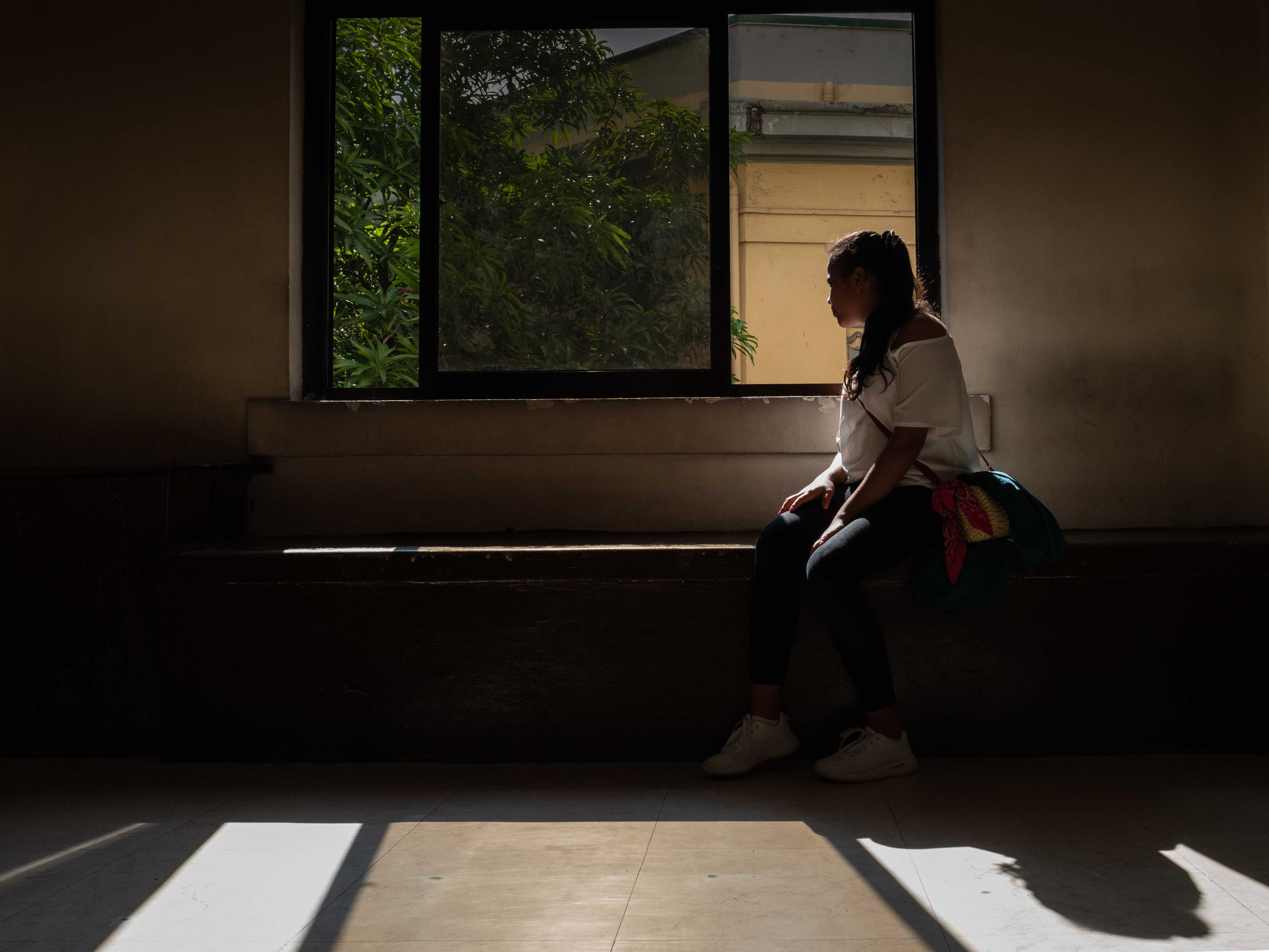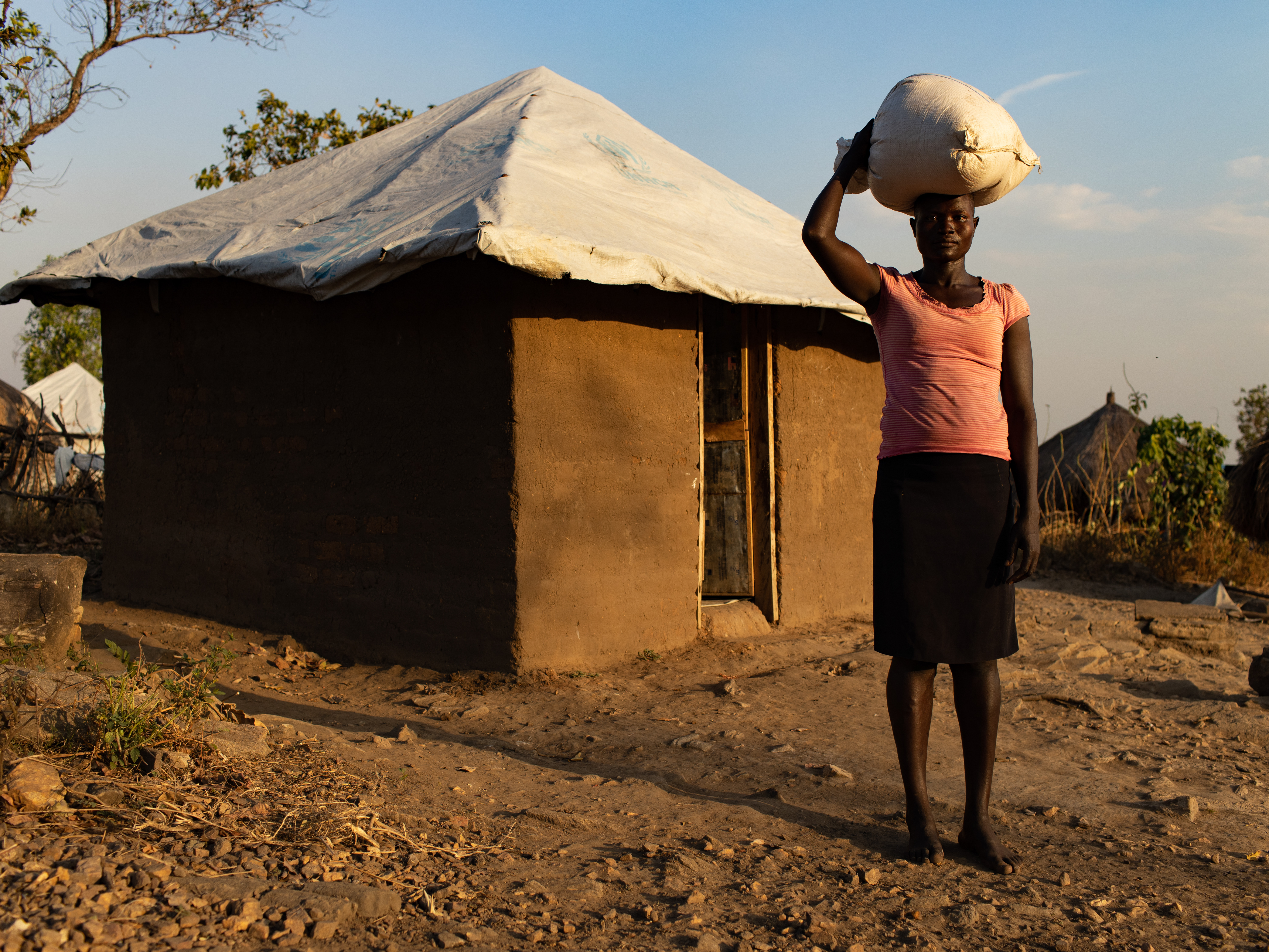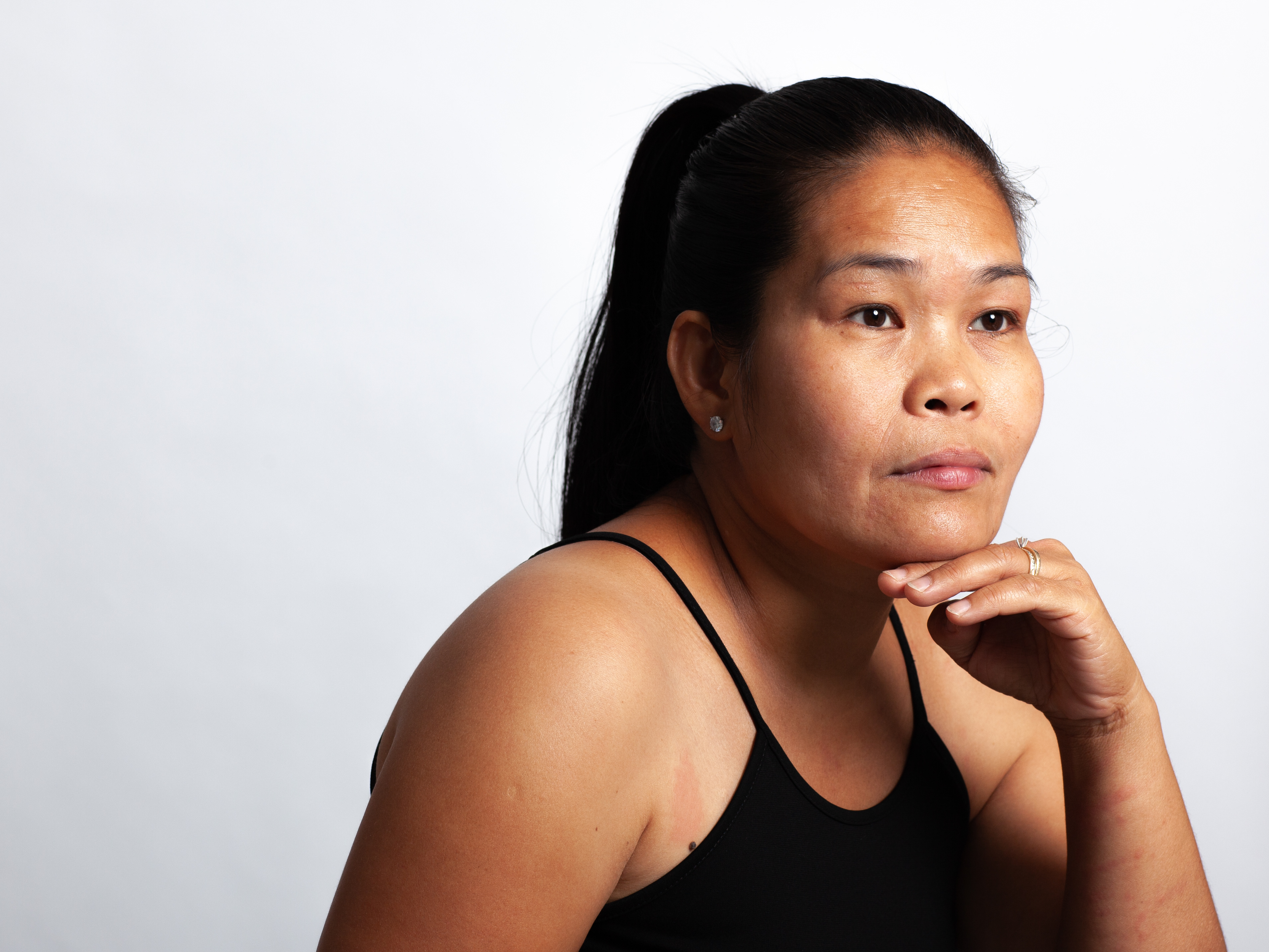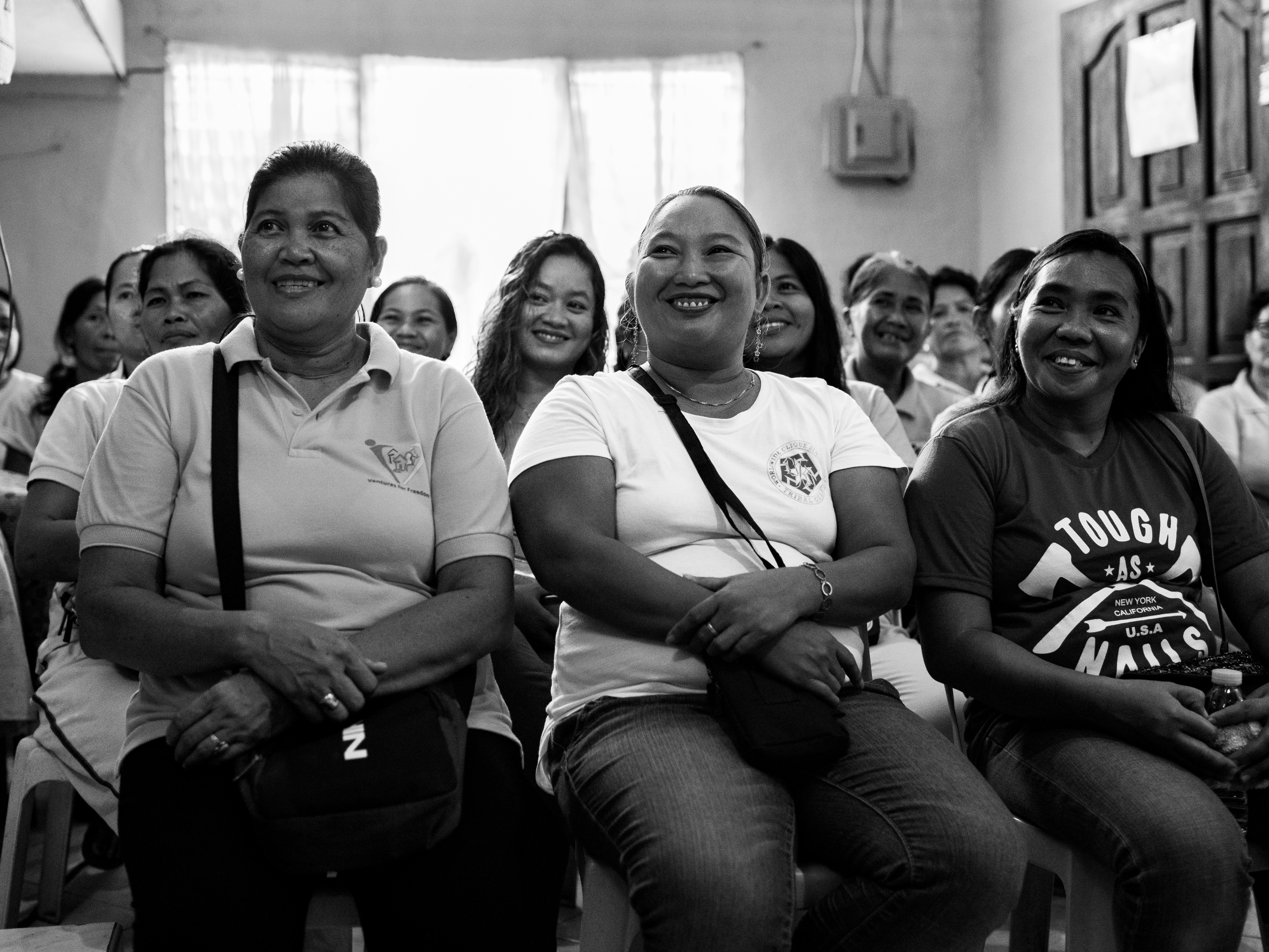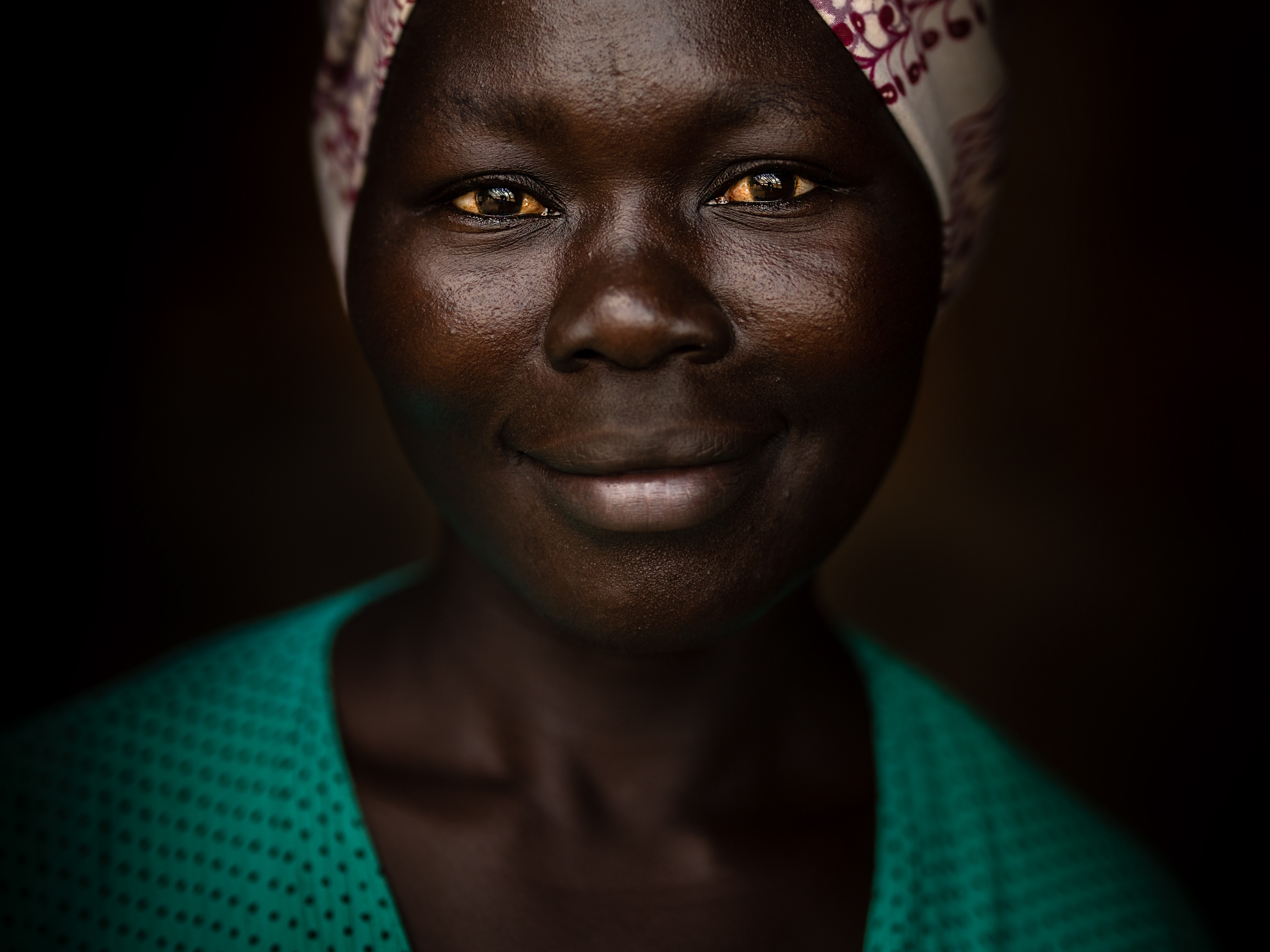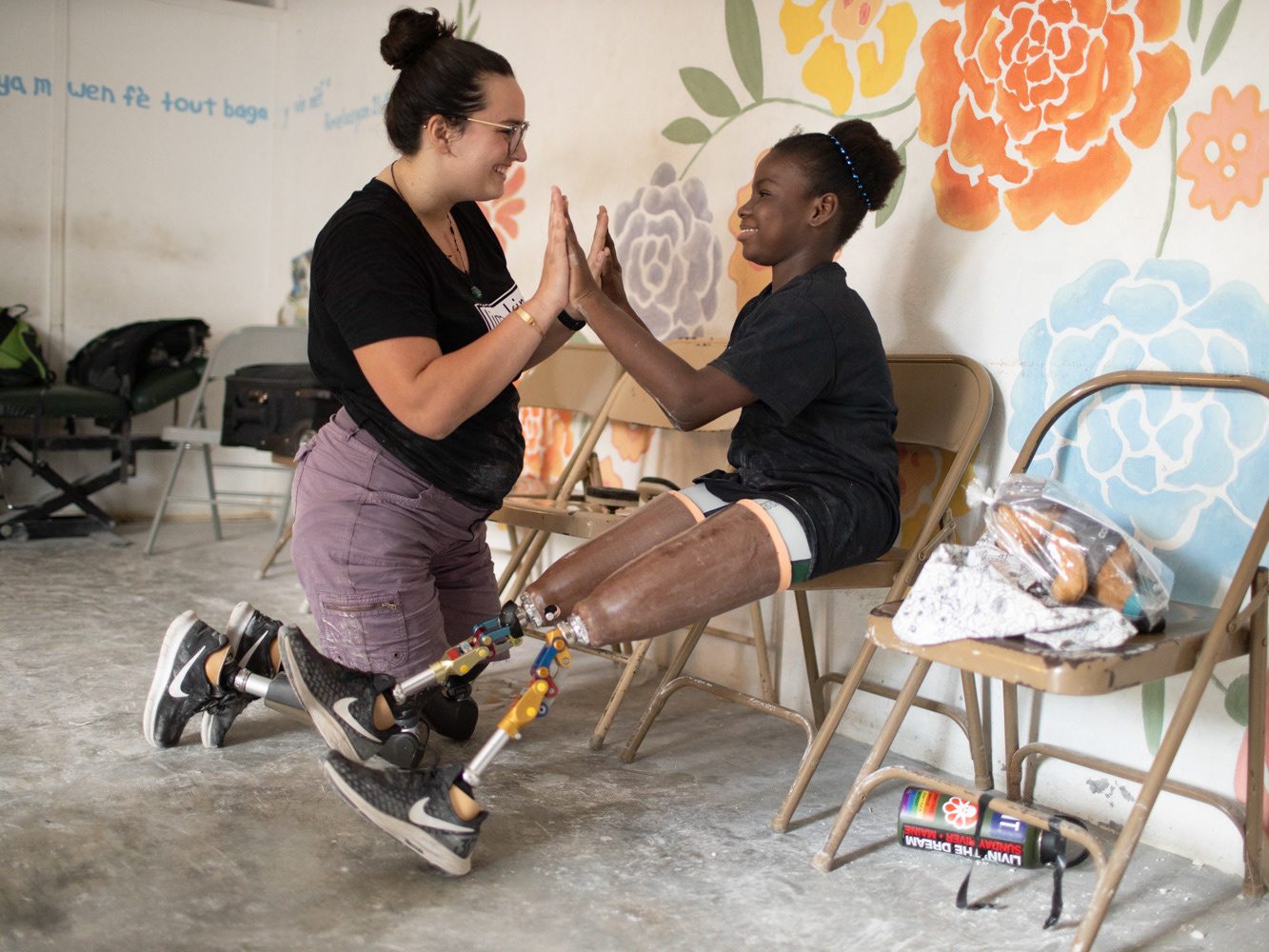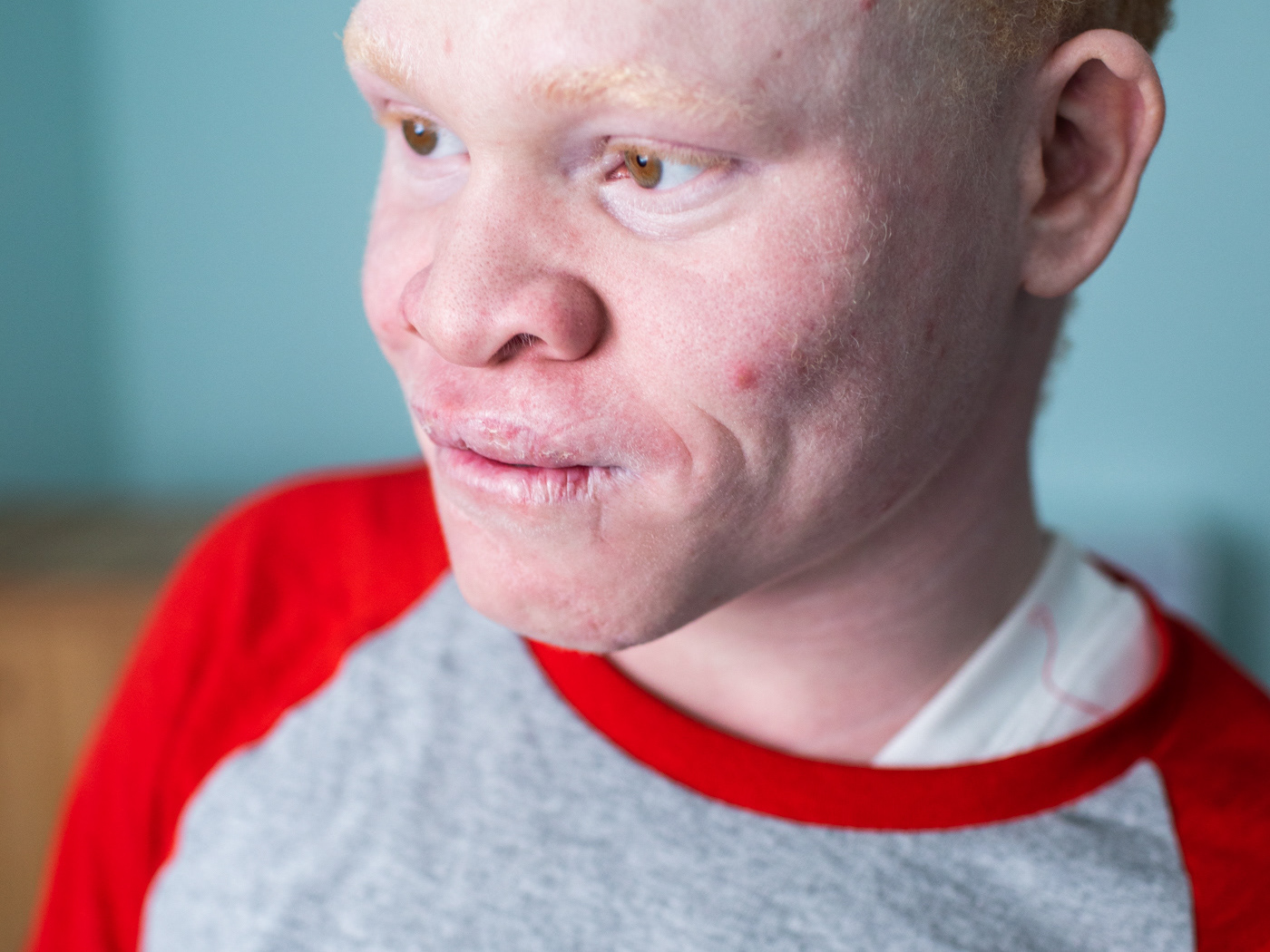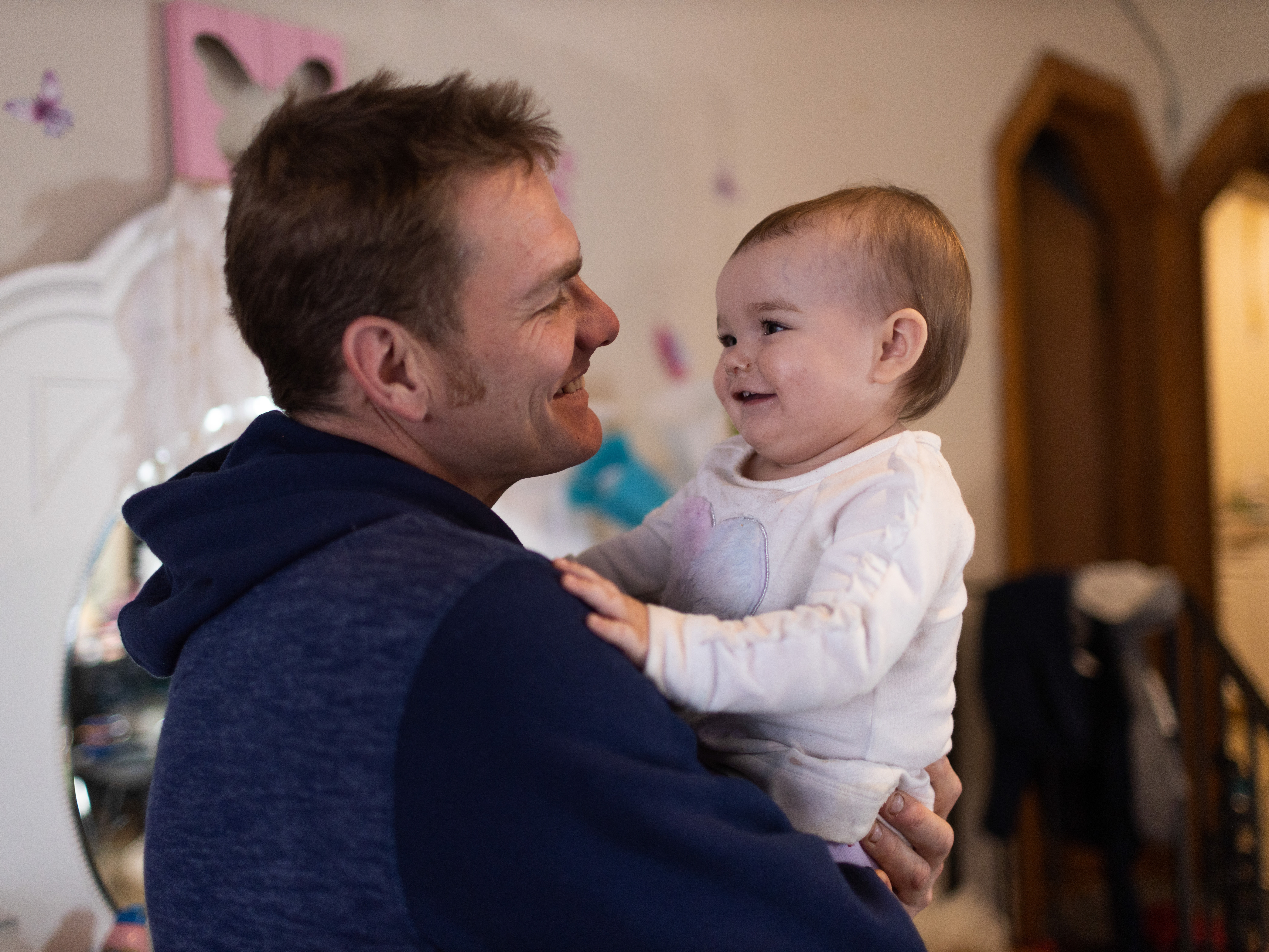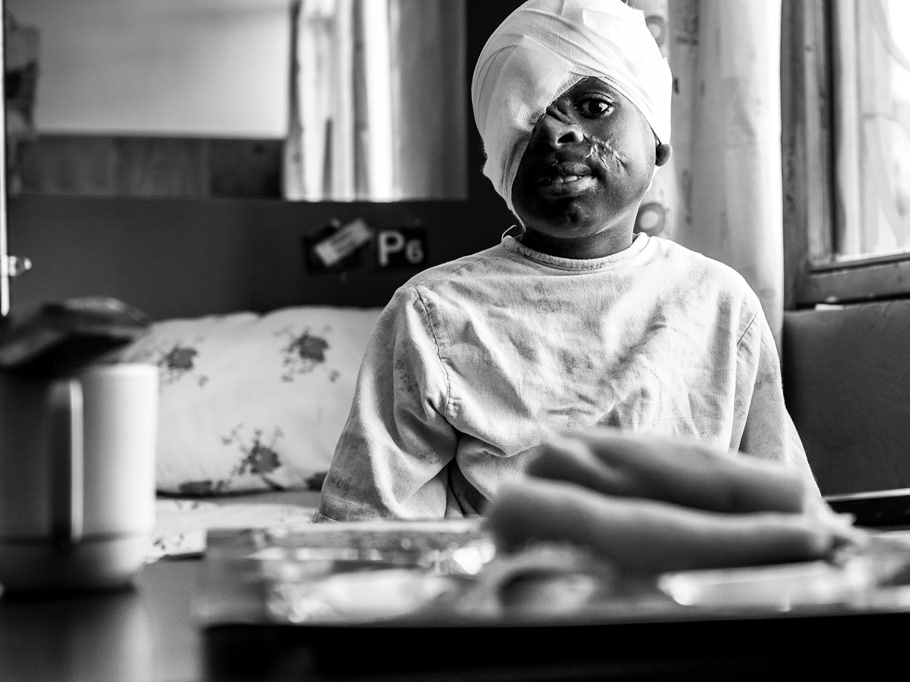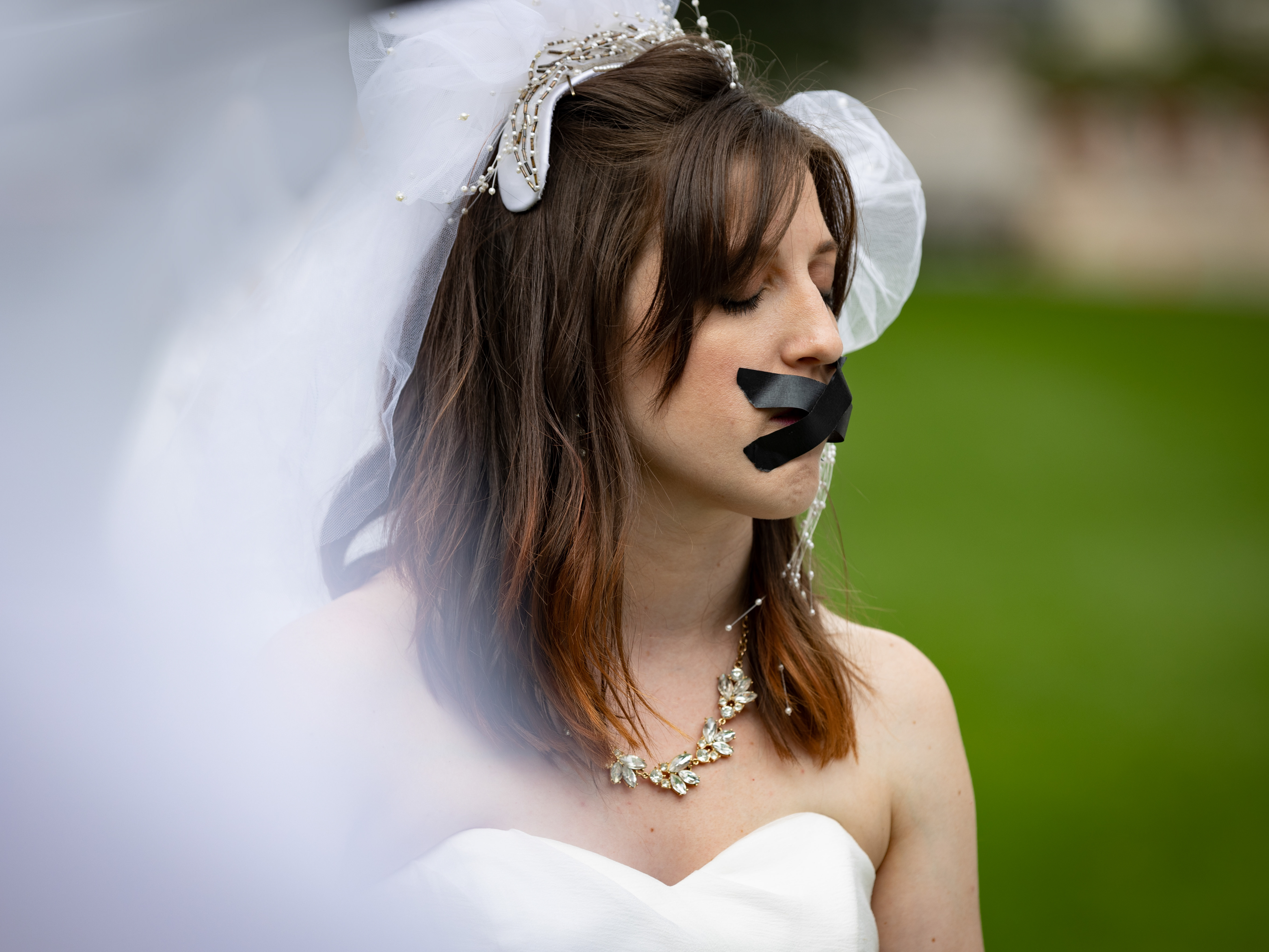Albinism is a beautiful and unique condition that is often misunderstood. However, its uniqueness can lead to separateness and isolation for many people with the condition. In the “The Truth about Albinism in Tanzania” series, American documentary photographer Matilde Simas captured Pendo, a Tanzanian survivor of a violent, superstition-driven attack who was waiting to receive prosthetics provided by Shriners Hospital in Philadelphia. The series is set at Dare to Dream Home in New York, where Pendo is cared for by Global Medical Relief Fund (GMRF), a charity that hosts children who have been injured in conflict or disaster. By sharing experiences and increasing awareness, this series aims to break prejudicial boundaries and promote understanding of albinism.
Pendo lives in constant fear of attack, dismemberment, and death. She is shunned, hunted, and feared by others. She is among the nearly 7,000 Tanzanians with albinism, a hereditary condition that results in a lack of pigmentation in skin, hair, and eyes. In Tanzania, people with albinism are persecuted because of their lack of color. The regions of Shinyanga and Mwanza are particularly dangerous for those with albinism. Here, witchdoctors promote a belief in the potential magic and superstitious properties of albino body parts, and children with albinism are murdered so their skin, hair, and appendages can be used to make charms and potions believed to bring wealth, power, and good luck. They are seen as easy prey.
In the late 2000s, as a wave of ritual killings and amputations of people with albinism spread across Tanzania, the country’s government kick started efforts to ensure the physical safety of children with albinism. They established ‘temporary holding shelters’ to offer some degree of protection and placed children in walled settlements to protect and hide them.
After Pendo was attacked at age 14, UTSS removed her from her village and enrolled her in an education program as an emergency case. The loss of her arm is secondary to her feelings of isolation, loneliness, pain, and emptiness. “I wish I could help people understand that people with albinism are like everyone else. What makes us different is the fact we live in fear of those who want to hurt us. We are not ghosts; we are real people. This has caused so much pain in my life. I want to be a normal girl, not someone who needs to be hidden.”

